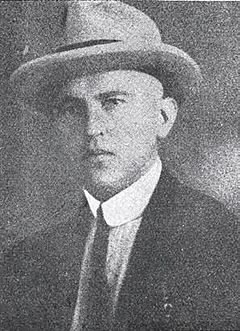Photo: robinsonlibrary.com
Anastasia Balezdrova
In 1914 Czech correspondent Vladimir Sis visited the tiny island of Trikeri that is located at the beginning of Pagasitikos Gulf in the Aegean Sea and a little later published the results of his study. In it he says that thousands Bulgarians were deported and killed on the island.
 GRReporter sought more information about the events from Greek historian Iakovos Michailidis who has examined the events associated with the island, which happened a little later, after 1920.
GRReporter sought more information about the events from Greek historian Iakovos Michailidis who has examined the events associated with the island, which happened a little later, after 1920.
Mr. Michailidis, journalist from the time of the Balkan wars Vladimir Sis wrote in one of his correspondences that thousands of Bulgarians were deported to the island of Trikeri and subsequently died. You have studied this period of history of the Balkans. What do historical documents show?
Vladimir Sis and many other correspondents and journalists were paid by the Ministries of Foreign Affairs of the various Balkan countries to say and write many things. Therefore, their testimonies are of limited value and are part of the propaganda mechanisms developed by all Balkan countries during the Balkan War and World War I to justify their positions and actions. We must be particularly cautious of the brochures issued at that time. This of course does not mean that no serious crimes were committed in the Balkans, but that these people unilaterally represented them.
Is there evidence of this?
 Yes, we have evidence of all of them. A magnificent book about propaganda and the Balkan countries has been published in Bulgaria. Its author is current rector of Sofia University, historian Ivan Ilchev. He is a man with an outstanding reputation and an established historian with international recognition. In it, he describes precisely the propaganda mechanisms created by the Balkan states in the era of nationalism, from the 19th century until World War I. The book describes the people and practices that had a purely propagandistic character. Their writings have little value for historians. They are only used as propaganda materials and that is all.
Yes, we have evidence of all of them. A magnificent book about propaganda and the Balkan countries has been published in Bulgaria. Its author is current rector of Sofia University, historian Ivan Ilchev. He is a man with an outstanding reputation and an established historian with international recognition. In it, he describes precisely the propaganda mechanisms created by the Balkan states in the era of nationalism, from the 19th century until World War I. The book describes the people and practices that had a purely propagandistic character. Their writings have little value for historians. They are only used as propaganda materials and that is all.
Apart from that, atrocities were committed in the Balkans during both the Balkan War and World War I. Unfortunately, the nationalist hysteria that spread in all Balkan countries led to heinous crimes from all sides.
As historians, we are obliged not to fall into "the trap" of using these writings and drawing conclusions of the type ''who was worse compared to the others''. However, we use them as evidence to show how rivalry, intolerance and hatred in the Balkans can bring similar disasters.
What were the relations between the Balkan countries at that time?
The relations were hostile. It would not be an exaggeration to say that they were all against all.
The first common enemy was the Ottoman Empire. Therefore, during the First Balkan War the Balkan countries united around the common religion, Christianity, to persecute the oppressor. Many crimes were committed during the war, including large-scale persecutions against peaceful populations, especially among the Muslim populations in southern Serbia - in the region of Kosovo, and in southern Bulgaria. Of course, these persecutions were committed in response to other crimes such as the massacre in Batak. Therefore, the situation was "an eye for an eye and a tooth for a tooth."
The settling of accounts between the Balkan countries and the Ottoman Empire during World War I and the forced leaving of about 300,000 Muslims were followed by a bloody settling of accounts between the Balkan countries themselves. Greeks fought against Bulgarians, Bulgarians fought against Serbs. The hostilities led to terrible catastrophes that in turn led to bloodshed and refugee waves.
Bulgaria was defeated in the Balkan wars and therefore became a revisionist state. During World War I it allied with the Central European empires in order to be able to regain the territories that it had lost during the Balkan wars. Furthermore, having suffered successive defeats at the military front Bulgaria lost many territories and accepted large refugee waves.
Serious crimes were committed during World War I too. In the region of Eastern Macedonia in Greece people still remember many of the crimes committed by the members of the Bulgarian army and the members of detachments during the Bulgarian occupation when mass deportations of Greeks were carried out, for example in the region of Doxato. Such deportations took place during the Balkan war and during World War I.
There were persecutions against other populations. I do not use these examples as arguments in terms of which country was more or less vindictive. I just want to say that uncoiling this spiral of crime leads nowhere.
As a result of all this, the Slavic speaking population with Bulgarian consciousness in the Greek region of Macedonia left Greece and the whole process was backed by the Neuilly Treaty in 1919. At the same time, the Greek population in Eastern Rumelia, in the regions from Plovdiv to the Black Sea, was almost completely eradicated too.
In practice, the biggest problem for the Balkan countries during the first half of the twentieth century was their failure to create national states, without infringing civil rights. They failed to provide the residents of border regions with rights and freedoms, regardless of their language, religion and national origin.